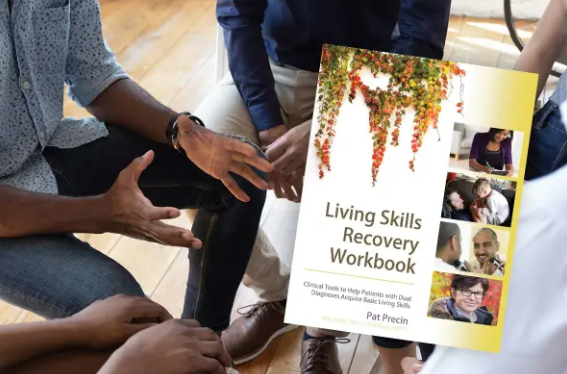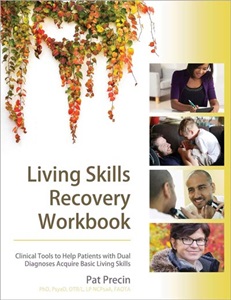
OTR’s Innovative Approach Unites Occupational Therapy With 12-Step Recovery Model
Dr. Pat Precin is an OTR from New York who developed a curriculum for individuals with mental illness and substance use to learn basic living skills.

Pat Precin, PhD, PsyaD, OTR/L, LP, NCPsyA, FAOTA
Assistant Professor, Occupational Therapy Program, Vagelos College of Physicians and Surgeons, Columbia University
OT Intern Coordinator, HEL Children’s Home and Family Services
Psychoanalyst, Private Practice
Location: New York
Certified in 1988
The OT Innovation
While working as an occupational therapist in an outpatient dual diagnosis clinic (mental illness and substance use), Dr. Pat Precin noticed a gap in services—living skills were being taught without regard to an individual’s substance use. In response to this gap, Dr. Precin developed occupational therapy treatment interventions that integrated skill acquisition and the 12-step recovery model. Dr. Precin then wrote group leader plans for each treatment session for interdisciplinary staff members and students to use at the clinic. The result is the Living Skills Recovery Curriculum (LSRC), which incorporates stress management, time management, activities of daily living, and social skills training with 12-step practices so that each living skill is taught in relation to how it aids in recovery, harm reduction, and relapse prevention for each client’s individual lifestyle, living situation, and pattern of substance use.
“It is wonderful to see this practical occupational therapy approach so clearly presented and made available to other professions and directly to the consumers themselves.”
Tina Barth, OT
Producing Positive Results
The objective of Dr. Precin’s program is to enhance the clients’ quality of life through decreasing substance use (frequency, duration, and clean time) and increasing occupational engagement through living skill acquisition.
Her three-year effectiveness study (funded by the Metropolitan New York District of the New York State Occupational Therapy Association) indicated that this form of treatment was effective in decreasing substance use and increasing knowledge, application, and achievement of goals in the areas of time and stress management, activities of daily living, and social skills. The results of the stress management module have been published in academic journals and in Dr. Precin’s book, Living Skills Recovery Workbook, which is used in educational programs and is considered the standard in bridging didactic classroom experiences with clinical practice.

Dr. Pat Precin developed the Living Skills Recovery Workbook, an occupational therapy workbook that provides clinicians with the tools necessary to help clients with dual diagnoses acquire basic living skills, including stress management, time management, activities of daily living, and social skills training.
This comprehensive workbook contains a collection of activities and worksheets to teach skills necessary to improve the quality of life for individuals with dual disorders, along with 70 forms that can be filled in by patients to aid in self-awareness. Ultimately, this guide emphasizes recovery through functional development skills.
Related News
NBCOT launched the Innovation and Impact Awards in 2020 to publicly recognize the exceptional work OTR and COTA certificants do in their daily practice.